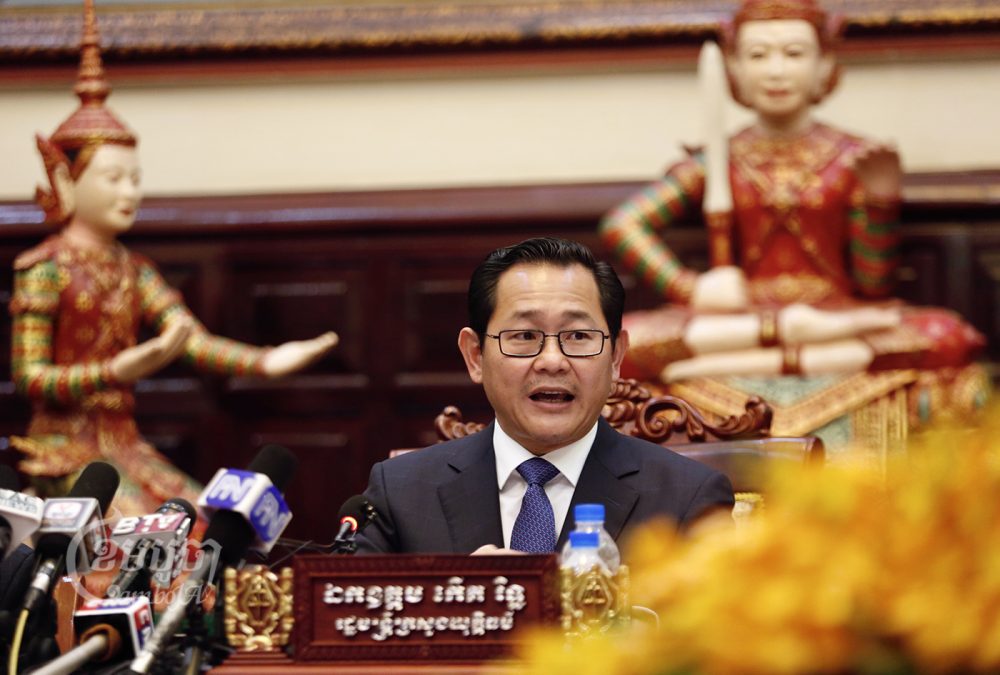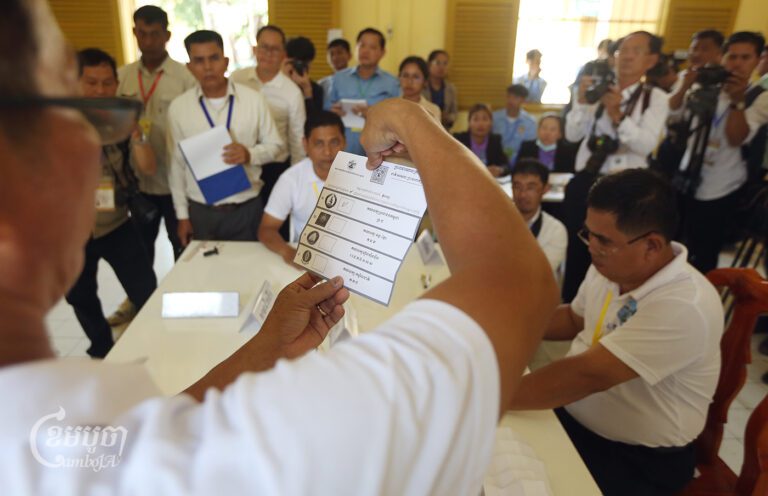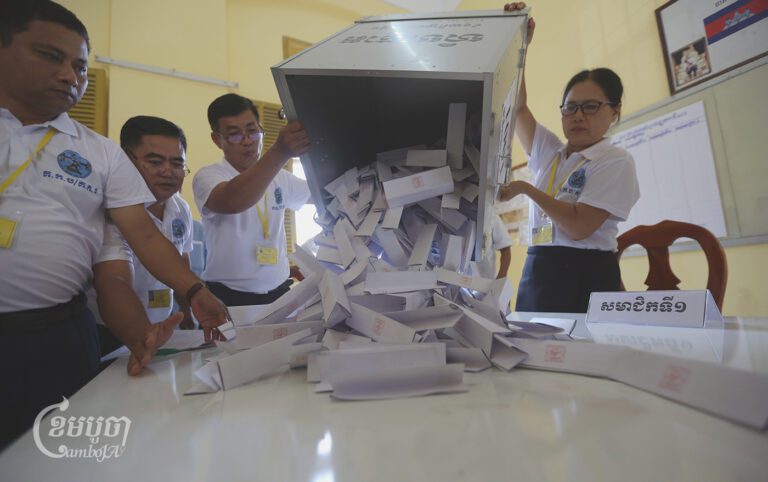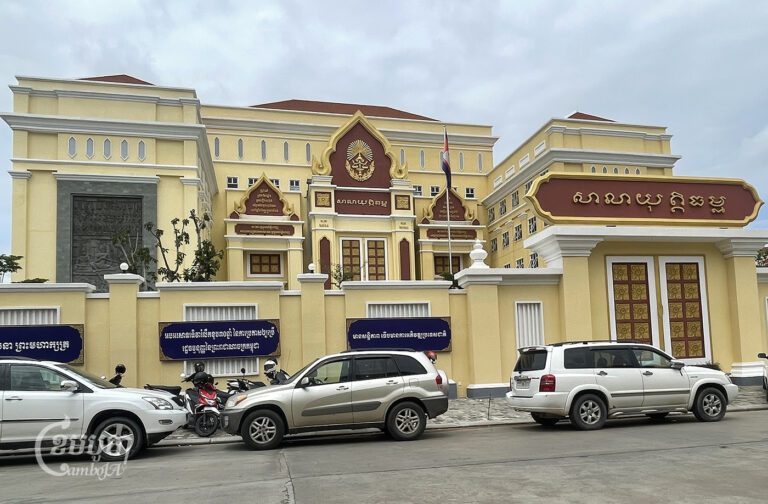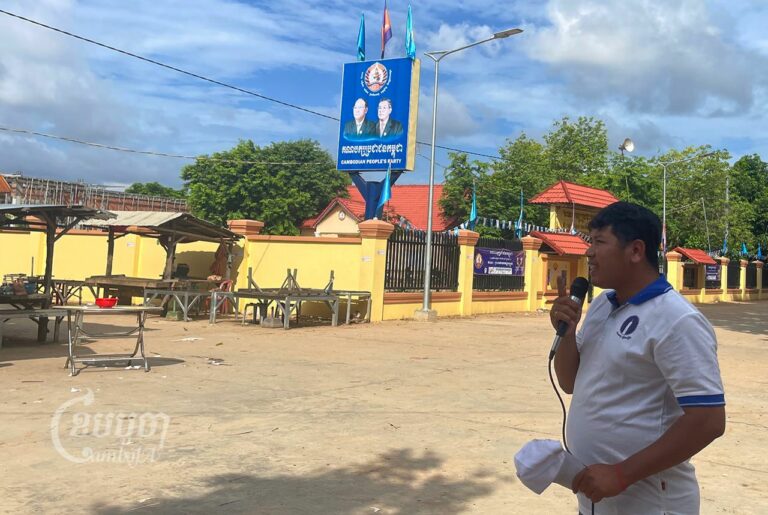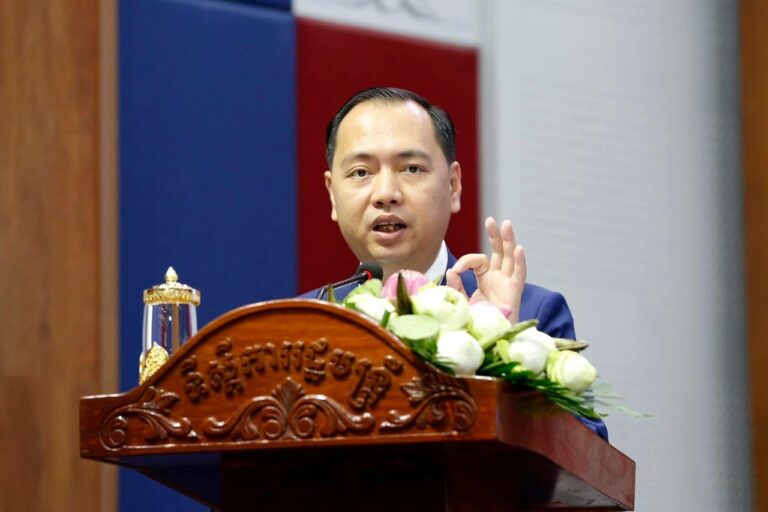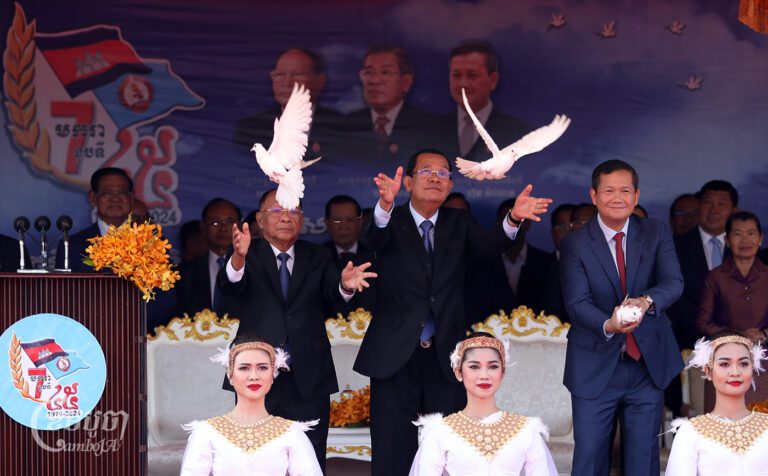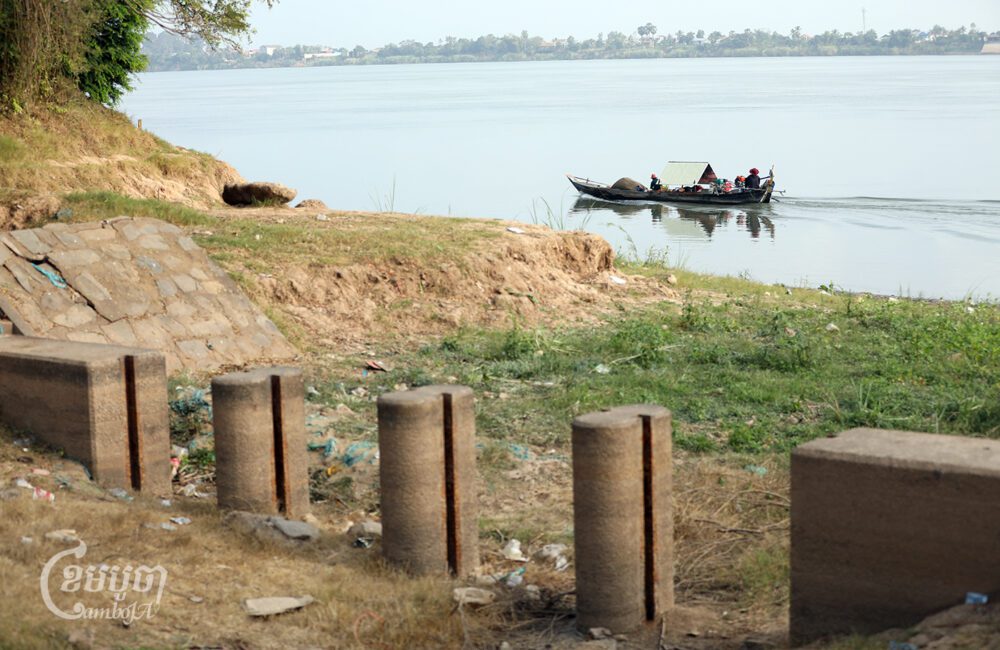The government denied planned constitutional changes were intended to cement a permanent grip on power, saying the amendments merely filled gaps in the laws governing transitions of power.
Critics complained the updates sidelined the National Assembly, further concentrated power with the ruling CPP, and made it easier for Prime Minister Hun Sen to appoint his eldest son, Hun Manet, as the Kingdom’s next premier.
Koeut Rith, the minister of justice, said such concerns were unfounded.
“The amendments do not appoint the Cambodian People’s Party to permanently lead the country,” he said. “Cambodia remains a multiparty democracy.”
Leng Peng Long, a spokesman for the National Assembly, said the draft amendments were sent to parliament Thursday, and the permanent committee would review them next week.
Son Chhay, vice president of the Candlelight Party, blasted the changes, saying the government’s role was to strengthen democracy and state institutions, not protect the prime minister’s family.
“I have seen the draft amendments,” he said. “They are designed to protect the prime minister’s position.”
Mr. Chhay pointed to changes in Article 119, which took the power to form a new government from the president and vice presidents of the National Assembly and gave it to the party with the most seats. He said the change ensured a strong 2023 showing by the Candlelight Party would not derail Hun Sen’s plans for succession.
“The rights of the National Assembly have been reduced,” said Em Sovannara, a political analyst. “Not only its role in choosing the prime minister, but its power for oversight and ability to censure government officials.”
Article 98 governs the assembly’s power to dismiss governments and government officials. The law requires 30 of the assembly’s 125 members to dismiss a sitting government. A proposed amendment would increase the threshold to one-third.
Lao Mong Hay, a veteran political analyst, condemned the move, saying constitutional amendments should be put before voters.
“The current parliament has no popular mandate to make any constitutional amendments when the idea of such was not part of the political platform or manifesto on which it was elected,” he said.


